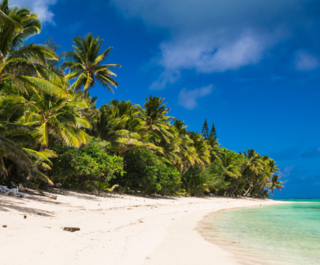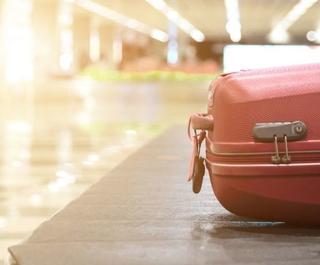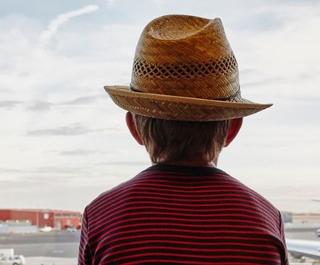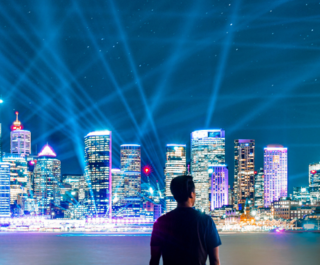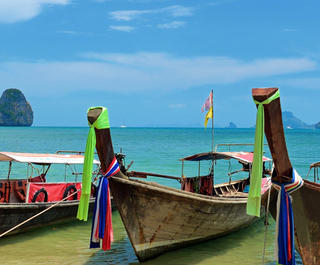
Up until last month, I’ve always been able to say “I don’t get seasick”. I’ve sailed on more than 40 cruises. On ships large and small. Some with massive engines. Some with majestic sails. And never, I repeat never, have I had an issue.
That changed though on the Kimberley Coast sailing on Coral Expeditions I between King George Falls and Darwin. The forecast was lousy. Big seas. High winds.
I was sailing on the 35-metre catamaran, which the brochure described as being designed for maximum stability and guest comfort.
I’d just finished dinner - fish with beans and a couple of glasses of red wine - when the ocean swell started to kick up a storm.
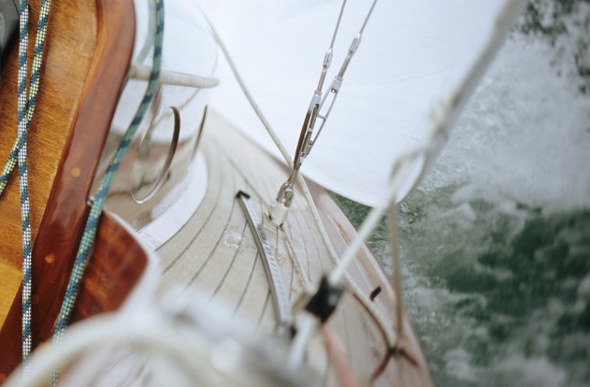 Rough seas can turn even the hardiest of stomachs into quivering messes (Image: Getty)
Rough seas can turn even the hardiest of stomachs into quivering messes (Image: Getty)
Most of my 38 fellow guests hastily retreated to the sanctuary of their cabins to grab some motion sickness medication.
Not me. I don’t get seasick.
But after being tossed about in my bed for three hours with the ship rising sharply and then crashing on the waves, I could take it no longer. I lost my dinner - three times - in the space of two hours. I was feeling miserable and whimpishly sorry for myself.
The thing about being seasick though, is that once it starts you can’t stop it. Your only option is to ride out the tide of terror and wait until the sea calms.
As far as I’m aware no-one has ever died of seasickness. But as I knelt, hands on the toilet bowl, screaming out my maker’s name, I did wish for death to take me quickly.
Relief though came in the early hours of the morning when the skipper manoeuvred us into calmer waters. It was like turning off a tap. As soon as we stopped, the seasickness stopped.
When everyone emerged from their cabins you could almost smell the relief, and you could smell the disinfectant spray Glen 20 trying to mask the horrors of the night before. Faces were green. Everyone craved dry toast with vegemite.
 Especially on smaller craft it's best to be prepared (Image: Getty)
Especially on smaller craft it's best to be prepared (Image: Getty)
There is a thing called catamaran bliss. Bora Bora Bliss: Yachting In Tahiti
Our experts have the answers. Common Cruising Questions Answered By Experts
Then the skipper announced that the forecast for the next night was even worse and that after dinner, when the ship headed away from the sanctuary of calm waters, we would be confined to our cabins.
Thankfully there was a kind almost retired doctor on the trip who took pity on me and slipped me a tablet. He said it would help.
The Purser also slipped me some phenergan. She said that would help. And another passenger gave me a ginger tablet. He said that would help.
 Sleep (and some helpful pills) provided the best relief (Image: Getty)
Sleep (and some helpful pills) provided the best relief (Image: Getty)
I took all three and woke up some 12 hours later. Sleep is the perfect cure for seasickness. I realise that’s not the best treatment, so on my return home I’ve researched seasickness and discovered some tips to beat the nausea, vomiting and dizziness that happens when your inner ear goes haywire.
- Try to find a place on the ship with the least motion possible. That’s usually in the lower cabins or in the cabins close to the centre of the ship.
- Avoid alcohol and fatty foods. Proteins are your friend in rough seas.
- If you can get outside, breath in the fresh air, and always keep your eyes on the horizon.
- See the doctor before you cruise. If you take the right medication before the sea gets rough you will stay healthy. Remember in this case drugs are your friend. Ask your doctor about the patches that sit behind your right ear.
- Invest in a Sea-Band. You wear the band on your wrist and it applies acupressure to the Nei-Kuan pressure point.
- Take ginger in any shape or form. The ginger aids digestion and you can take it as a powder, in tea, as pills or lollies.
- And if all that fails just close your eyes and put in earplugs. Some doctors believe that seasickness is actually your brain getting confused by too many mixed signals. So start to shut these signals down by removing smells, tastes, hearing and vision.



